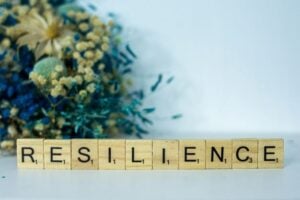A Balanced Workforce Strategy
With generative AI and other new market research technologies coming to the forefront, the question becomes: Is your team ready? According to a survey by Salesforce, the answer is often no. The data suggested that “while the majority of workers are optimistic about GenAI’s potential to advance their career, 62% say they don’t have the skills to effectively and safely use the technology,” according to Correlation One’s article, “Upskill, Reskill, or Hire? For GenAI, You Need All Three.”
The Correlation One article further suggests that a balanced strategy is best to prepare your team and workforce for new technology and tools such as AI, including upskilling, reskilling and new hiring. They advise, “The first step in preparing for the era of GenAI is identifying the essential skills that organizations and their employees will need to navigate the shift. It’s useful to think about these skills in three buckets: technical skills, AI literacy, and soft skills.”
Some technical skills expected to be in high demand include programming languages, machine learning, deep learning frameworks, and data manipulation techniques. AI literacy skills will also be growing in interest, such as data science, analytics and skills needed to understand AI and its impact on the business, as well as extracting and analyzing data and insights for the business.
As Correlation One notes, AI literacy will be a significant factor going forward: “AI literacy skills are not only for technical roles; they are essential for individuals at all levels of an organization. From executives to frontline workers, a basic understanding of AI can lead to more informed decisions, ensure ethical practices, and improve collaboration with technical experts.”
In addition, as more tasks become automated with AI tools, employees will need soft skills as they take on new roles in the new workforce. New training programs might be needed for problem-solving, creativity, communication, critical thinking, collaboration, and adaptability, which could contribute to strategic work, problem-solving, and innovation in the workplace.
Identifying Trends in Future of Work
In “Taking Next Steps with Innovation Talent,” All Things Innovation looked at the future of work through the lens of the innovation team, which has become more cross collaborative with multiple disciplines. With the competitive landscape intensifying, and the need to create value always present, it becomes more significant to foster a resilient culture of innovation, as well as identify and retain talent. We look at some key steps one can take to reinforce innovation talent initiatives.
In “The Future of Work is Reshaping Trends in Innovation,” All Things Innovation explored the trends happening in the future of work. The workplace is shifting and evolving, as we have all experienced, and not just from the significant impact of the pandemic, which accelerated many trends. Given the rapid changes in technology, the growth of digital transformation efforts, the workforce and the workplace are changing. Some changes might be temporary and some changes might be transformative. With the developments in artificial intelligence, many predict that jobs might be lost, while other jobs will be gained. And many jobs will change. Just what does the future of work hold in store for the business of innovation?
Closing the Skills Gap
For insights and market research professionals looking to upskill, reskill, and level up their skills as the workplace changes, here are some fundamental tips courtesy of ChatGPT:
- Embrace Lifelong Learning: Commit to continuous learning and stay updated with the latest trends, technologies, and methodologies in insights and market research. Attend workshops, webinars, conferences, and pursue relevant certifications to expand your knowledge and skillset.
- Develop Data Analysis Skills: With the growing importance of data-driven decision-making, proficiency in data analysis tools and techniques is essential. Invest time in learning statistical analysis, data visualization, and advanced analytics to extract actionable insights from complex datasets.
- Master Technology Tools: Familiarize yourself with emerging technologies and tools relevant to insights and market research, such as AI, machine learning, automation software, and advanced survey platforms. Leveraging these tools can streamline processes, improve efficiency, and enhance the quality of research outcomes.
- Cultivate Critical Thinking: Develop strong critical thinking skills to assess information critically, identify biases, and interpret findings accurately. Enhance your ability to analyze complex problems, think creatively, and generate innovative solutions to meet evolving business needs.
- Adapt to Remote Work: As remote work becomes more prevalent, adaptability and digital literacy are crucial skills for insights professionals. Learn to effectively collaborate and communicate in virtual environments, utilize remote collaboration tools, and manage projects remotely to stay productive and connected.
- Foster Cross-functional Collaboration: Collaborate with colleagues from diverse backgrounds and disciplines to gain new perspectives, share insights, and collaborate on interdisciplinary projects. Building strong relationships across functions fosters innovation and facilitates the integration of insights into strategic decision-making.
- Prioritize Soft Skills: In addition to technical skills, cultivate soft skills such as communication, leadership, and adaptability. Effective communication skills are essential for conveying insights clearly and persuasively to stakeholders, while strong leadership and adaptability enable you to navigate change and drive positive outcomes in dynamic work environments.
Supporting Employees in the Workplace
By mastering such skills as new technology and tools, cultivating critical thinking, and adapting to a changing business environment insights professionals can prioritize new skills in an evolving workplace. But often, employees can’t necessarily do this without more support, which is crucial. Upskilling and reskilling become essential priorities for organizations to help their employees transition to new roles.
Will generative AI transform the workplace as many fear? Or it will it merely augment specific tasks? As Correlation One notes, this is about training people, not just training models: “Implementing GenAI is not solely a technological endeavor. It is also a human-centric task that demands careful consideration of the workforce’s skills, fears, and aspirations. As the demands of GenAI continue to evolve, organizations must ensure they are prepared to upskill and reskill their current workforce in addition to bringing in new talent with the specialized skills and competencies to fully leverage the potential of GenAI.”
Video courtesy of AIHR-Academy to Innovate HR
Contributor
-

Matthew Kramer is the Digital Editor for All Things Insights & All Things Innovation. He has over 20 years of experience working in publishing and media companies, on a variety of business-to-business publications, websites and trade shows.
View all posts

























































































